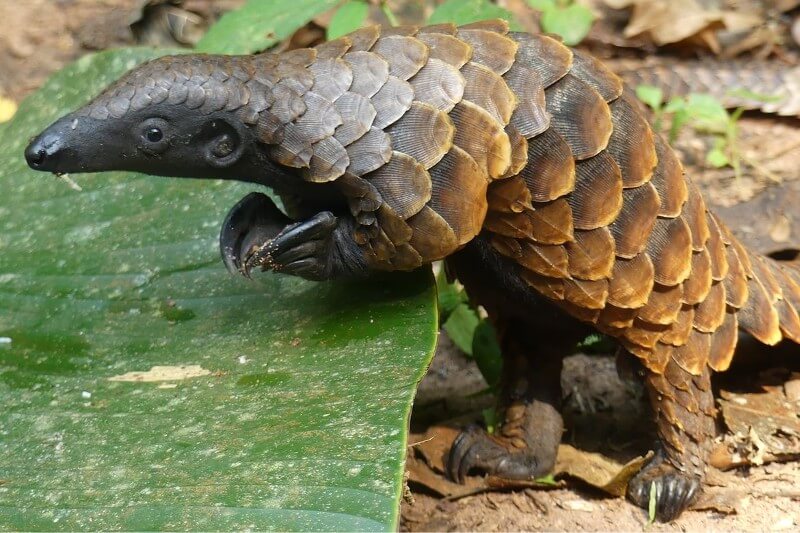Groundbreaking Study Reveals Insights into the Genomic Makeup of Endangered Species
In a significant scientific breakthrough, researchers from the University of California, Los Angeles (UCLA), have unravelled crucial genetic information regarding the white-bellied pangolin, a critically endangered species at risk of extinction due to illegal wildlife trade and habitat loss. The pioneering study sheds light on the unique chromosomal composition of these elusive creatures, providing vital insights that could aid conservation efforts aimed at preserving their dwindling populations.
Published in the prestigious scientific journal Molecular Ecology Resources, the UCLA study outlines the team’s meticulous analysis of the white-bellied pangolin’s genome, which plays a pivotal role in understanding the genetic diversity and evolutionary history of the species. By delving into the pangolin’s genetic blueprint, the researchers hoped to uncover clues that could guide conservation strategies and ensure the long-term survival of these remarkable creatures.
“The white-bellied pangolin is a species of great concern due to its dwindling numbers and vulnerability to poaching,” explained Dr. Samantha Simmons, lead author of the study and a postdoctoral researcher at UCLA’s Institute of the Environment and Sustainability. “Our study aimed to deepen our understanding of its genetic makeup, ultimately contributing to targeted conservation initiatives.”
To carry out their research, the UCLA team examined samples from individual pangolins sourced from regions spanning Africa and Asia. By applying cutting-edge genomic sequencing techniques, they successfully decoded the pangolin’s DNA and identified distinct chromosomal patterns unique to the species. These findings lay a solid foundation for future studies aimed at preserving the pangolin’s genetic diversity and addressing challenges posed by its dwindling populations.
The study’s results provide important insights into the white-bellied pangolin’s evolution and genetic adaptation, shedding light on its capacity to survive in varying environments and its potential for resilience in the face of mounting threats. Armed with this newfound knowledge, researchers and conservationists can more effectively devise strategies to protect and restore the habitats necessary for the pangolin’s survival.
“We have unlocked valuable genetic information that allows us to better understand the unique characteristics and adaptations of the white-bellied pangolin,” highlighted Dr. Christopher Thompson, senior author of the study and an associate professor at UCLA. “These insights will play a pivotal role in developing conservation plans, guiding efforts to preserve this species for future generations.”
The white-bellied pangolin, with its distinctive scaly armor and gentle demeanor, faces an uncertain future. As one of the world’s most trafficked animals, these pangolins are in high demand for their scales and meat in illegal markets, further exacerbating the threats they already face from habitat destruction and fragmentation. By utilizing the genetic knowledge gained from this groundbreaking study, scientists and policymakers can strive for effective conservation measures that protect this species and curb the rampant trade that fuels its decline.
While challenges persist, the UCLA study offers a ray of hope for the survival of the white-bellied pangolin. By leveraging the power of genomics, researchers have laid a crucial foundation for comprehensive conservation efforts, inspiring optimism for a brighter future for these enchanting creatures.

